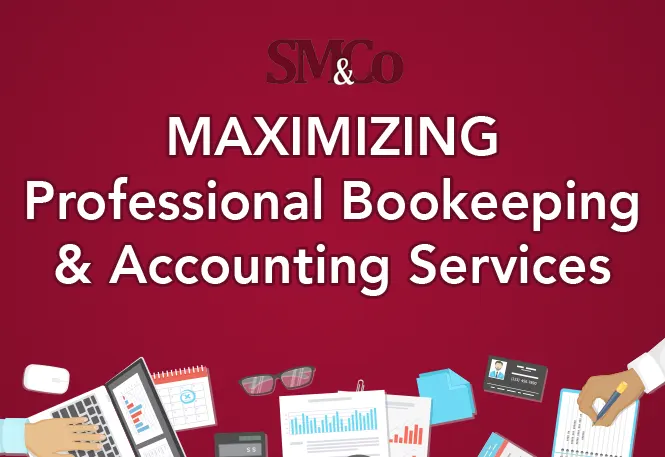
“Bookkeeper” (or bookkeeping) is the only common word in the English language to contain three pairs of double letters in consecutive order — it’s also today’s topic of conversation
If you’ve decided to give professional bookkeeping or accounting services a try, you likely have questions about how to get the most value from it. The great news is that there are many things you can do to maximize the services you’re paying for.
Whether you prefer monthly, quarterly, or annual bookkeeping, understanding how to maximize these services can enable your bookkeeper or accountant to do your books efficiently while helping to minimize fees in the long run. Let’s take a look at some steps you can take to simplify this process:
1) COMPLETE THE NECESSARY DOCUMENTS TO PROVIDE TO YOUR BOOKKEEPER OR ACCOUNTANT
If the bookkeeper has to wait on documents from you to finish your books, this delays completion. Waiting on completed documents also means that your bookkeeper would need to pick up your work again after the wait and review what work has already been done.
We see how all of this can easily increase the time it takes for your bookkeeper to complete the work. Not to mention this increased work also results in increased fees that you’ll have to pay (additional labor costs are a thing in the world of accounting).
Here are a few suggestions from our Smith Marion team when it comes to professional bookkeeping or accounting services and you, the client:
- You and your bookkeeper should develop a list of all the documents that the bookkeeper will need to complete your books each period (bank statements, check register, payroll records, etc.).
- Consider granting your bookkeeper access to your bank account to download bank statements, credit card statements, and transactions. Your bookkeeper can often be given “read-only” access. Doing this will remove the potential back-and-forth of your bookkeeper asking for information, you having to sign in and pull up the information and send it over. Cut out that middleman and grant them access.
2) KEEP YOUR PERSONAL EXPENDITURES SEPARATE FROM YOUR BUSINESS EXPENSES
One best practice is to have a separate bank account for your business so that your bookkeeper knows that all transactions are business related and can categorize accordingly.
I run personal expenses along with business expenses through my accounts — what should I do? Sometimes, this is the case. Don’t stress. We simply recommend that you set up a system with your bookkeeper to categorize these expenses.
3) COMMUNICATE WITH YOUR BOOKKEEPER REGULARLY
- Let your bookkeeper know of any changes in your business, any assets purchased, changes in bank accounts, payroll, and more.
Giving your bookkeeper advance notice of these things will eliminate delay in finishing your books. - Ask questions when unsure of business deductions.
The more data you give your bookkeeper, the better the chances your books will be done accurately the first time without the need to go back and change things. - Review your financials.
Take the time to review your financials when you receive them to ensure that your financial picture looks like you expect it to. If there is something that doesn’t appear correct, communicate this with your bookkeeper as soon as possible.
IN CONCLUSION:
Smith Marino & Co. enjoys partnering with our clients, if you are in need of a bookkeeper for your business you can contact our office by calling us at 909-307-2323 or by emailing info@smco.cpa.
Jeanie Edgecomb, CPB, CPS
Director of Administration

